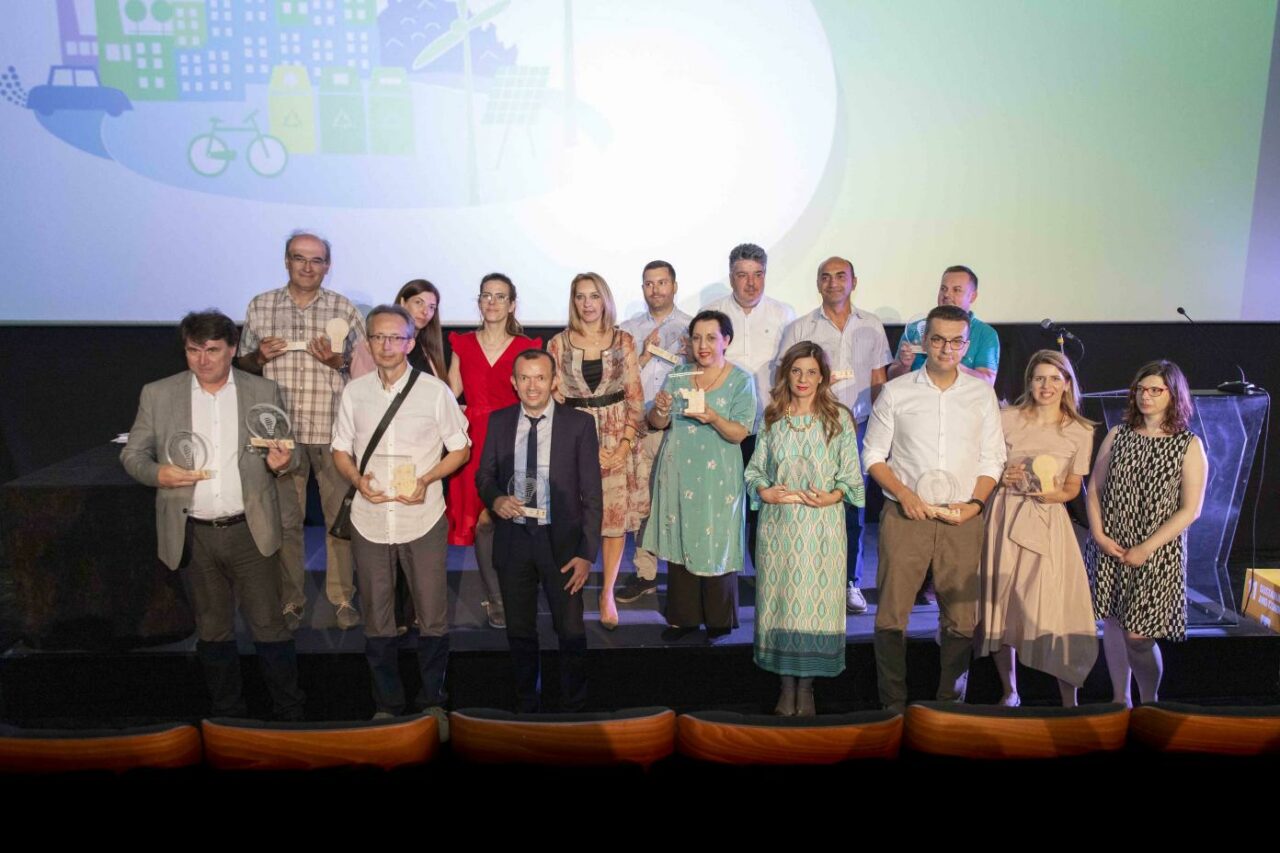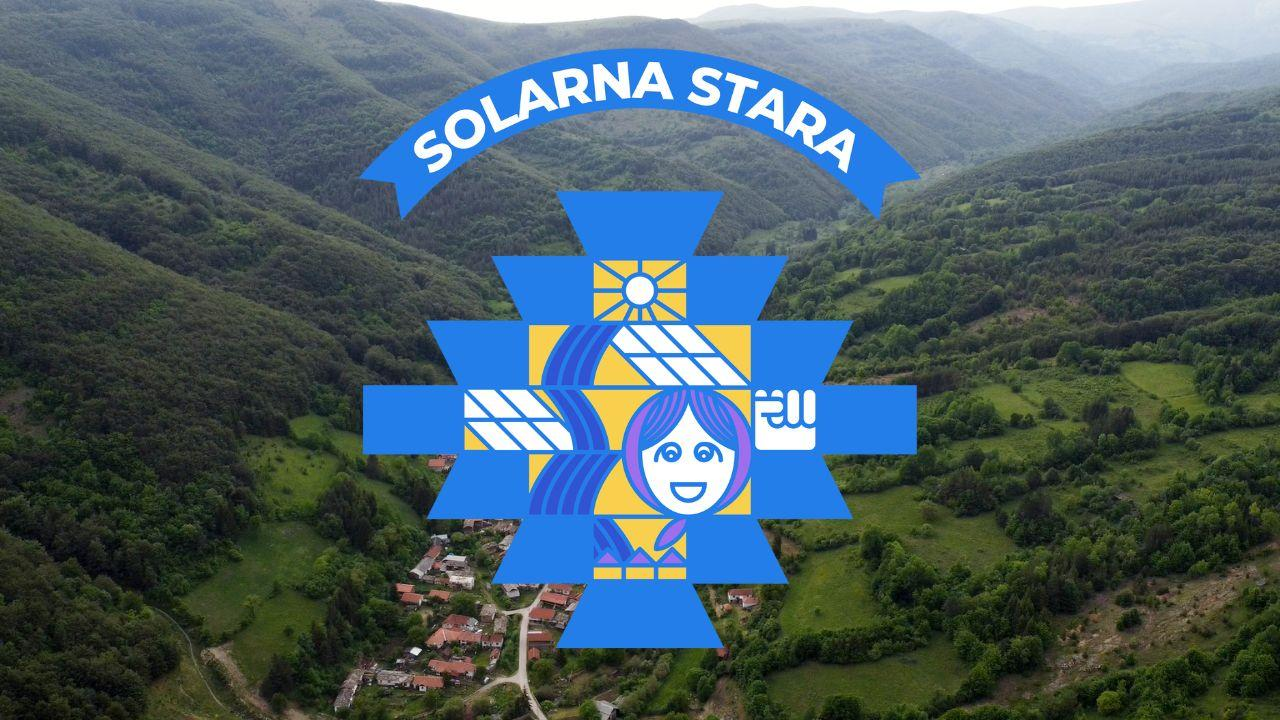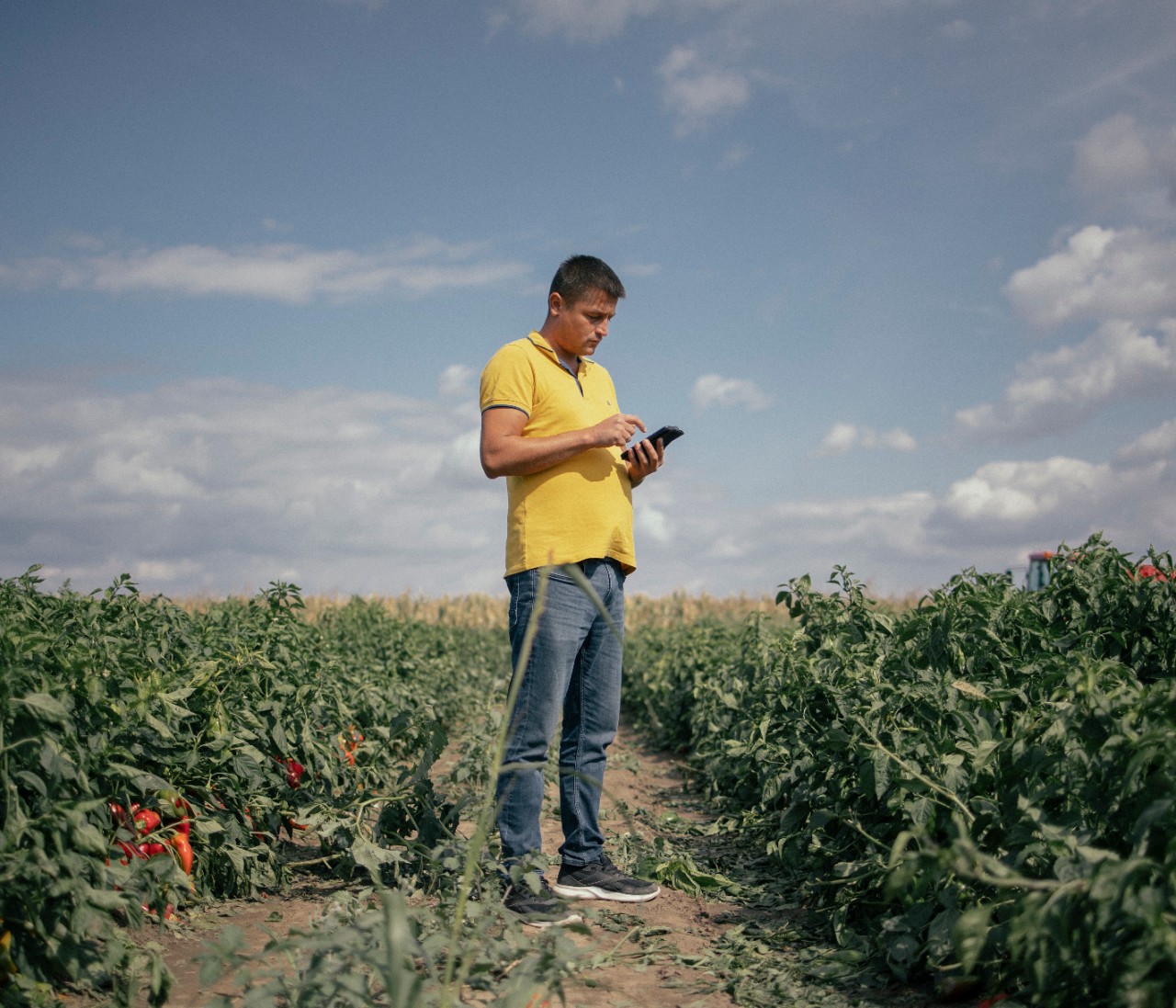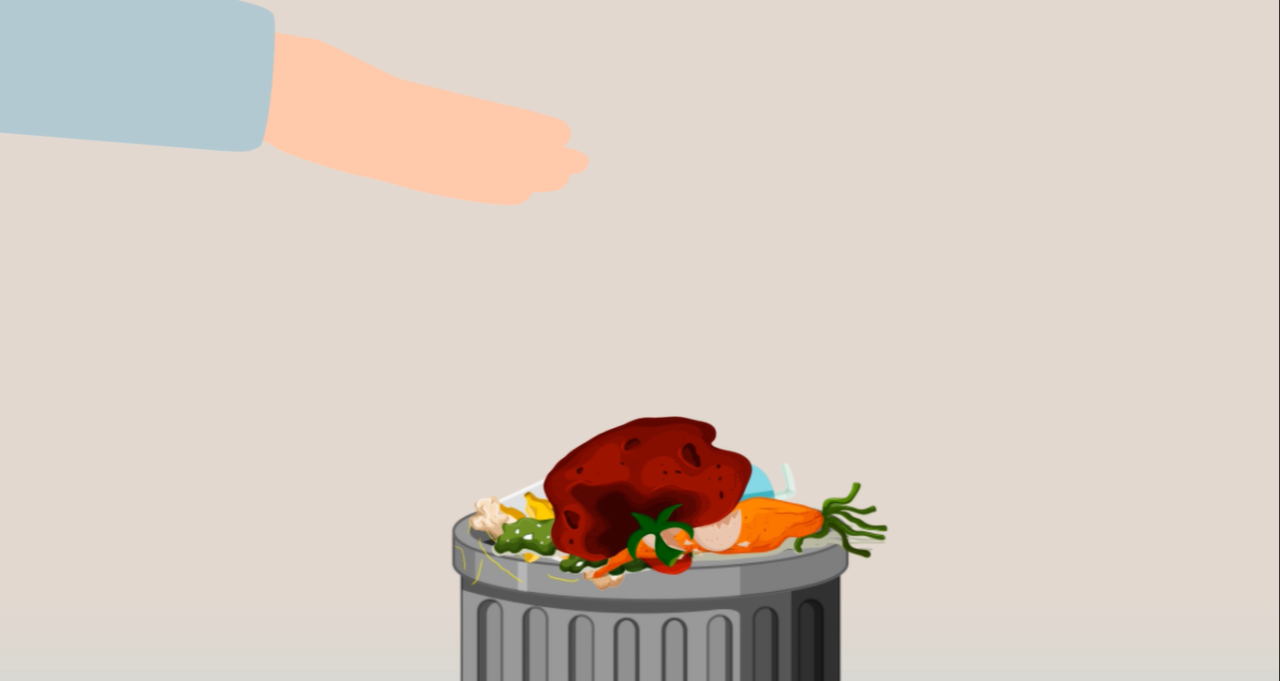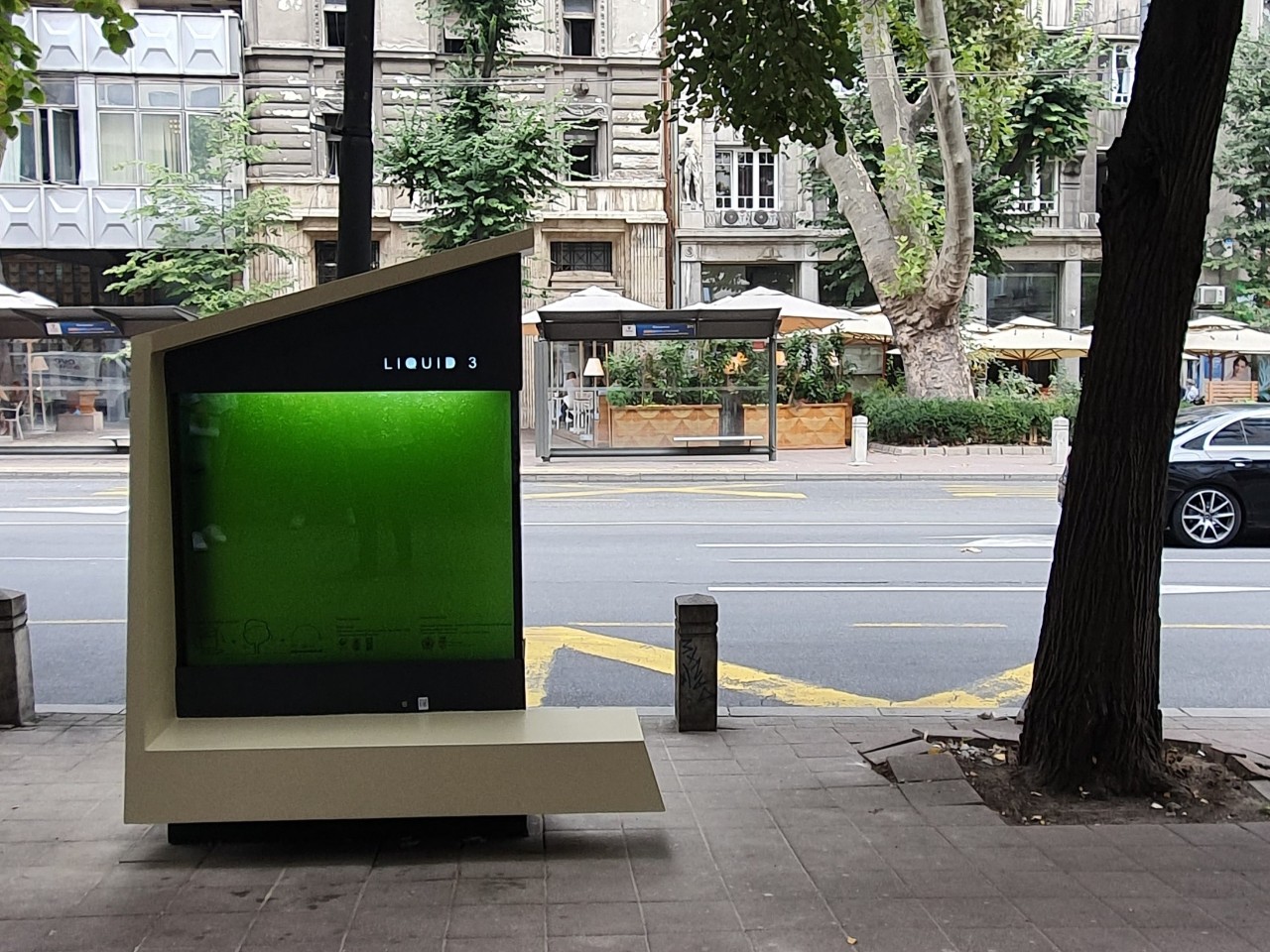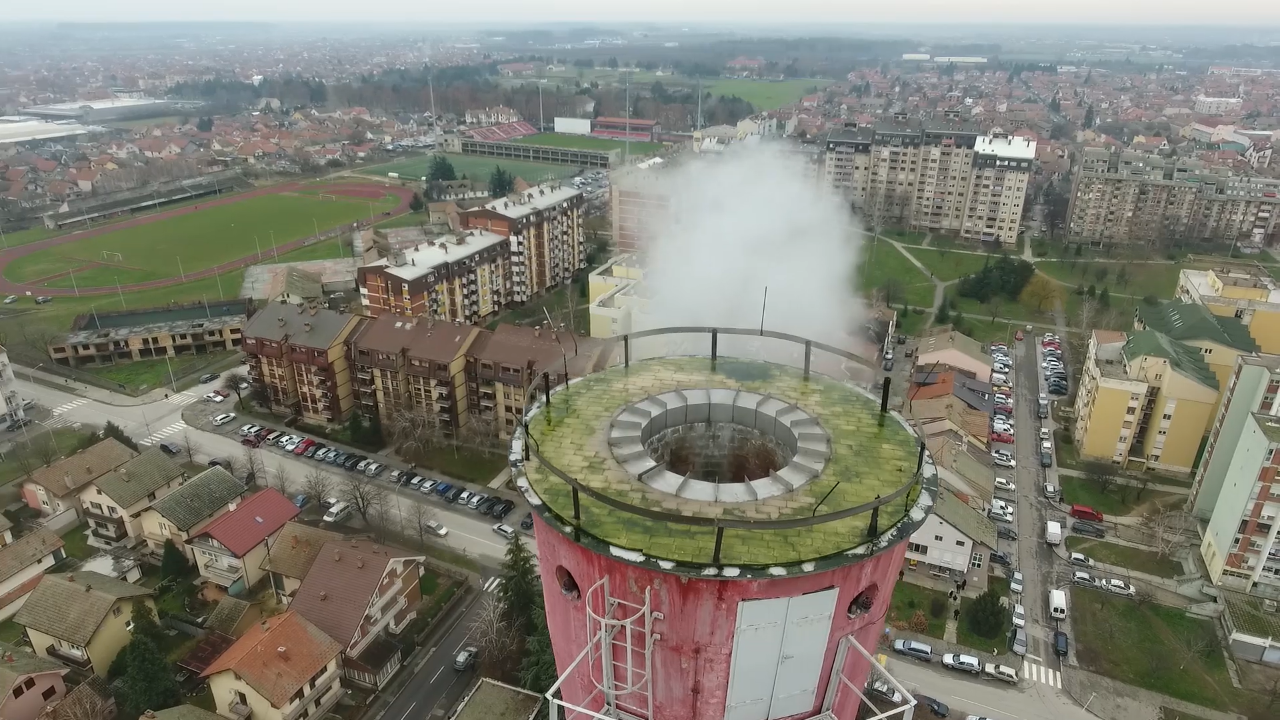-
Aug 15 2022 Bio soap production creates jobs for women and helps preserve the environment
Sjenica, a town in Western Serbia, is surrounded by nature reserves on all four sides. One of these nature reserves is the Uvac Special Nature Reserve – home to the largest griffon vulture colony, a protected bird species nesting in this region. Being an area favourable to animal husbandry, sheep in particular, Sjenica is also famous for its eponymous cheese, as well as other specialities such as sujuk (a type of spicy sausage) and mantije (stuffed filo pastry), but also for its hospitality. Because of its unique natural beauty and its authentic local cuisine, the Sjenica region is attracting many tourists. This is why a number of locals have turned to tourism as their source of income in this, still underdeveloped, municipality.
Among them is Edina Puljić, an entrepreneur. Having spent years working in Western Europe she and her family returned to Sjenica and set up an ethno household.
– All our guests are presented with an authentic souvenir – bio soap. To remember us by and to come back and stay with us again. I make this soap using leftover cooking oil – Edina says.
Edina’s household is one of around 500 households in the region of Sjenica, from a total of over 2.000 households around Serbia, that are a part of BIO IDEA for Sustainable Development association’s social franchise. This association focuses mainly on women of different ages to teach them how to make home-made soap using leftover cooking oil from their households to generate additional income and save money. This opportunity is particularly interesting to women living in Sjenica, where the poverty risk index stands at 46.6%. At the same time, these workshops bring together women from different ethnic groups as this is an ethnically diverse area, with Bosniaks, Serbs, Albanians, Montenegrins, Turks, Roma and members of other communities living side by side.
Sanida Klarić, founder of BIO IDEA for Sustainable Development, says that the soap making workshops are primarily intended for women from difficult-to-employ categories such as women living in remote rural areas or women living in towns who became unemployed and are over the age of 45.
– Households in Serbia consume around 2,300 tonnes of cooking oil every month, of which one third ends up in nature. We recognised an opportunity to use the leftover cooking oil as a raw material for home-made soap production in social entrepreneurship workshops for women around the country – says Sanida.
Workshops are held in village households which traditionally make dairy products, handicrafts and fruit- and vegetable preserves, so manufacture and sale of bio soap can represent an additional activity for them. Training is free and the only condition for joining a workshop is solidarity to pass on the skills they have acquired to others.
In addition to contributing to economic empowerment of women, the manufacture of bio soap is also beneficial for the environment of the Sjenica region by reducing the quantity of waste ending up in its landfills. The Municipality of Sjenica has also recognised the importance of this initiative and has decided to support its further development by forming a soap manufacture cooperative.
BIO IDEA has reached other parts of Serbia as well. An entrepreneur from Zemun, Nataša Dokić, makes bio soap in her own home. Her main motivation is to protect the environment.
– I looked for ways of making my own contribution, in addition to recycling glass, paper and other types of waste, and making a difference, in my own home at least. That was when I discovered these leftover cooking oil recycling workshops. My family and I use the soap I make for any cleaning that needs to be done around the house – says Nataša.
In addition to good will and a bit of learning, if you want to make soap you also need proper equipment. The equipment was patented by BIO IDEA with the help of their partners – The Institute of General and Physical Chemistry and Ekoera company. The equipment consists of two recipient containers made from recycled materials, connected with a mesh for the oil to go through. It uses zeolite as filter to retain water and other impurities and obtain purified oil. Sodium hydroxide is then added to the purified oil which kick starts the process of saponification. Coffee, orange peel or dried herbs can be added to the mixture to enhance the soap fragrance. And 24 days later, the soap is ready to be used.
The advantage of bio soaps when used on skin is that they contain no allergens or preservatives. They are also good for the environment because they are biodegradable and their use does not impact the environment nor does their manufacture emit any noxious gases. For example, one litre of used cooking oil is enough to produce 10 bars of soap. This also saves 3.8 kilograms of Carbon dioxide (CO2) emissions if they were to be produced industrially. For example, that is the amount of CO2 emitted by a brand new car travelling from Belgrade to Pančevo and back.
– It benefits both man and nature if we use natural instead of industrial soap, whose production and distribution requires oil derivatives. Our tradition teaches us not to throw anything away. People have been making their own soap for centuries – says Sanida Klarić, while getting ready the next shipment of bio soap from her workshop in Belgrade.
This type of soap production promotes circular economy approach to entrepreneurship as well as in our own households. By reusing leftover cooking oil as raw material for a new product, we reduce waste that would normally end up in waste water systems or in landfills and further pollute the environment.
Check out a video story on this valuable initiative HERE.
***
“Accelerating Circular Economy” project was selected as one of the six best solutions under the “Bio-waste Management Challenge Call” organised by the United Nations Development Programme (UNDP) and the Ministry of Environmental Protection, with the support of the Swedish International Development Cooperation Agency (SIDA). The goal of this challenge was to support the implementation of innovative solutions for management of food waste and kitchen waste, as well as green waste from parks and gardens and contribute to the reduction of greenhouse gases (GHG) emission and pollution, as well as the development of the circular economy in Serbia.
-
Aug 15 2022 Innovations reduce CO2 emissions and increase Serbia’s resilience to climate change
The Ministry of Environmental Protection and the United Nations Development Programme (UNDP) awarded today the most successful innovators who have put into practice the solutions to reduce greenhouse gas emissions, making Serbian towns and municipalities more resilient to climate change.
These solutions were implemented thanks to the support of the Global Environment Facility (GEF) and will help reduce greenhouse gas emissions in Serbia by 500,000 tonnes of CO2, the equivalent of reforesting 145 football stadiums or planting 115,000 trees. The awards were given to 11 innovation teams from the public, private, civil and academic sectors, and six local self-governments.
The ceremony was officially opened by Ms. Sandra Dokić, Assistant Minister of Environmental Protection, and Mr. Miroslav Tadić, UNDP Team Leader for Environment and Climate Change.
“The awarded projects have shown that Serbia is rich in innovation, not only in the private and public sectors, but also in our scientific institutions and civil sector organizations (CSOs). These solutions are already showing a great impact in local communities,” said Ms. Dokić. “In addition, the Ministry has put a lot of effort into gathering data relevant to climate change from local self-governments and the private sector, and we will continue to work on this through our unified IT system. Only when we have accurate data can we plan our activities, allocate funds for their implementation, and monitor the impact of implemented measures.”
“Innovations whose implementation we have supported and which we are awarding today contribute to the protection of the environment and to the creation of new green jobs. In this way, we are helping Serbia mitigate the impact of climate change on its society and economy,” said Mr. Tadić.
The awards for Innovation Leaders were given to the Public Utility Company “Toplana-Šabac”, the companies Esotron, Jugo-impex E-reciklaža, Green Energy Point, Sanicula, Telefon – Inženjering and Global Sustainability Experts, the Institute “Mihajlo Pupin” and the Institute for Multidisciplinary Research, the CSO National Association of Autonomous and Electric Vehicles, and the City of Kraljevo.
The implementation of their solutions will increase the energy efficiency of district heating, increase the share of renewable energy sources (biomass, biogas and solar energy) in the overall energy mix, contribute to digitalization and resource conservation in agriculture, using waste to produce new products, fertilizers and energy, introduce circular business models, promote sustainable transport, purify the air in urban areas, and provide an early warning system to prevent forest fires. These solutions have also created 35 new green jobs.
The total value of funds invested by the awarded teams in implementing innovative solutions, with co-financing from the Global Environment Facility and the Ministry of Environmental Protection, amounts to around $11 million.
The innovation awards were also given to six Serbian local self-governments: Kragujevac, Kruševac, Kraljevo, Niš, Šabac and Sremska Mitrovica. They were awarded for implementing IT systems for collecting open data on greenhouse gas emissions and for preparing local low-carbon development plans. The IT systems and the development plans will provide these cities with better insight into data on greenhouse gas emissions in the areas of energy, transport, waste management, agriculture and
forestry. This data will be used to monitor measures for reducing greenhouse gas emissions and to better plan new measures in the future.
Finally, special prizes were awarded in the following categories: Contribution to the reduction of carbon footprint – won by Jugo-impex E-reciklaža from Niš, Best digital solution – won by the Public Utility Company “Toplana-Šabac”, Greatest impact in the local community – won by CSO Bio Idea, and Best innovation – shared by the Institute for Multidisciplinary Research and the Institute “Mihajlo Pupin”.
All the awarded innovations were implemented within the Climate Smart Urban Development project, which UNDP has implemented over the past five years, in partnership with the Ministry of Environmental Protection and with financial support from the Global Environment Facility (GEF).
-
Jul 08 2022 The crowdfunding campaign for the first solar power plants at Stara planina has started
In cooperation with the locals of the Stara planina mountain villages Dojkinci and Temska, as well as the town of Pirot, the Elektropionir Energy Cooperative launched the “Solarna Stara” campaign for crowdfunding the construction of cooperatively owned solar power plants. The total income made from solar power plants, as the first cooperative owned one’s in Serbia, will go to these local communities.
We invite you to help this campaign with you donation to install two solar power plants of 5 kWp, each on the roofs of the Temsko Local Community building and the Dojkinci Cultural Center. All annual income from these power plants for the next 25 years will go to local associations and organizations that contribute to community life.
The total value of the project is 1,680,000 dinars and Elektropionir and donors have already collected half of the funds. Of the other 840,000 dinars necessary for the construction of solar power plants, almost half has already been collected, and the campaign will last for the next 16 days.
You can support campaign in several ways:
– with online donation on https://www.donacije.rs/projekat/solarna-stara/
– by payment to the current account of the Energy Cooperative Elektropionir
– sharing information sanou the campaign on social media
More information about the project on https://elektropionir.rs/kampanja-solarna-stara/
-
Jan 10 2022 How the First Digitized Farm in Serbia Increased Yield Despite Drought
Outside the village of Belegiš, a dusty road across dry, cracked land, surrounded by dried maize fields, leads to a green oasis on the field crop farm of Nikola Lončar. This farmer, born and raised in Belegiš, is the first one in Serbia to embark on the adventure of digitizing the fields where he grows vegetables for sale. One of the reasons for pioneering this approach in Serbian agriculture is the high risk brought on by droughts in recent years.
The scale of the risk is witnessed by the fact that in 2021 Serbia broke a dismal record for high temperatures by recording the hottest month of June in the past 100 years.
– It has been increasingly unstable in the past five or six years, or even longer. The climate is changing year after year. Rainfall is irregular. It is too high in the spring, and non-existent in the summer when it is needed most. During my time as a farmer, we never had total damage to crops like we did four years ago – explains Nikola.
It was in that same year that Nikola made contact with experts from Mihajlo Pupin Institute of Belgrade, from whom he procured the smart device Mobisan – a mobile solar power generator. Mobisan was developed by a multidisciplinary team of engineers and crop scientists, specifically for small and medium-sized family farms, since over 95 percent of Serbia’s registered farms have under 10 hectares of land.
– The device is a combination of sensor and computer networks. It includes sensors in the soil, a digital weather station and a computer system that wirelessly collects information about microclimate and soil. On the basis of the information collected, it automatically irrigates the field and adds fertilizer, or transfers the information to Nikola through a mobile app, so that Nikola could adjust water and nutrient dosage for the plants. Mobisan can be operated remotely and is designed to streamline the use of natural resources. It supplies the soil with no more and no less than what is needed, but just the right amount. This enables financial savings and also protects the soil from excess chemicals – explains Aleksandar Rodić, head of the Robotics Laboratory at Mihajlo Pupin Institute.
This year, Nikola had 20 hectares of land under maize, 10 under wheat, and more than 4 under vegetables. He successfully grew two field crops on the same field by irrigating them throughout the six-month growing season. He notes that the current system enables yield stability, which is a key prerequisite for contracting vegetable sales to large retailers.
– Early in the year, I plant vegetables for known buyers. I negotiate quantities for specific buyers already in the winter and spring. Without stable yield, I cannot fulfil the contract, and then I am subject to penalties.
Thanks to the fact that Mobisan is powered by sun and wind, Nikola no longer uses diesel fuel, thus saving money and protecting the environment from pollution. For a 10-hectare field, replacing a diesel generator with a solar one saves 3,375 euros per season in fuel, as well as 6,750 kg in CO2 emissions. In addition, the yield has been increased by as much as 30 percent. The total pepper yield per season now amounts to 10 wagonloads.
– I save time, as I do not need to go to the field all the time to open and close valves – the device does all of it. The system tells me how much fertilizer and nutrients to add, how much to irrigate and for how long. I save electricity and water and preserve the soil. After we installed this system, I took my first real vacation, as it all functioned well without me. I operated the device from the beach in Greece – says farmer Nikola.
The investment in a 10-hectare digital field pays off in three years.
– For Serbian agriculture, mobility combined with renewable energy sources is the way to go. Besides the scientific and professional challenge, we were guided by the ethical motive to help Nikola, as a representative example of those 95 percent of family farms, because more than a million people in Serbia make a living by farming. The solution is not to merely give them subsidies; it is also necessary to teach them and give them the technology to be successful – stresses Aleksandar.
Technological innovation in agriculture enables adapting to the changing climate, while at the same time contributing to greenhouse gas (GHG) emission reduction.
***
Mihajlo Pupin Institute’s “Development of Innovative Solutions in the Area of Smart Land Management in Agriculture” was selected as one of the 11 best innovative and climate-smart solutions within the “Climate Smart Urban Development” project, implemented by the United Nations Development Programme (UNDP) in partnership with the Ministry of Environmental Protection, with financial support from the Global Environment Facility (GEF).
-
Nov 06 2021 Celebration of the World Food Day
World Food Day is celebrated all over the world on October 16. through various actions and manifestations. This global event marks a day calling for worldwide awareness and collective action to combat the issue of hunger and ensure healthy diets for all. On this occasion, we have prepared tips on how to reduce food waste in households with simple steps that save money, while protecting the planet from pollution and reducing global warming.
The Food and Agriculture Organization (FAO) of the United Nations established World Food Day in 1979, and every year this important date is celebrated in more than 150 countries. This date has been celebrated in Serbia since 2001.
-
Sep 21 2021 THE FIRST ALGAE AIR PURIFIER IN SERBIA
The first urban photo-bioreactor in Serbia, “LIQUID 3”, has been placed in front of the Municipality of Stari Grad in Makedonska Street in Belgrade. This “liquid tree”, as it is called at the “Institute for Multidisciplinary Research” of the University of Belgrade, where it was designed, is a completely new biotechnological solution for air purification and reduction of carbon dioxide (CO2) emissions in urban areas where its concentrations are highest.
“More than half of the population of Serbia lives in urban settlements, even 59%, and that number is constantly increasing. This greatly affects the density of settlements, the quality of life, the increase in the number of vehicles on the streets, pollution and the increase of harmful greenhouse gas (GHG) emissions. It is estimated that cities are the source of as much as 75% of total CO2 emissions in the world, of which the largest percentage comes from traffic and cooling and heating in buildings”, explained Ms. Francine Pickup, Resident Representative of the United Nations Development Program (UNDP) in Serbia.
According to her, trees and green areas represent natural air purification in urban areas, but there is often a lack of free areas for landscaping. “LIQUID 3” is an efficient and innovative solution for reducing greenhouse gas emissions and improving air quality.
“The photobioreactor is a completely new biotechnological solution for air purification and the production of oxygen. In an aquarium of six hundred liters of water, we have algae that bind carbon dioxide and produce pure oxygen through photosynthesis. The project is designed to be multifunctional. LIQUID3 is also a bench, it has chargers for mobile phones, as well as a solar panel, thanks to which the bench has lighting during the night. The municipality of Stari grad has decided to support this project which directly contributes to improving the quality of life of our fellow citizens, public health and cleaner environment through using smart and innovative solutions “, said Bojan Bojić, head of the Department for social affairs and development projects in the Municipality of Stari grad.
“The microalgae in “LIQUID 3” replace two 10-year-old trees or 200 square meters of lawn. The system is the same because both trees and grass perform photosynthesis and bind carbon dioxide. The advantage of microalgae is that they are 10 to 50 times more efficient than trees. Our goal is not to replace forests, but to use this system to fill those urban pockets where there is no space for planting trees. In certain conditions of great pollution, trees cannot survive, while algae do not mind that pollution”, pointed out Dr Ivan Spasojevic, one of the authors of the project from the Institute for Multidisciplinary Research.
As he explained, the Institute used single-celled fresh water algae, which exist in ponds and lakes in Serbia and can grow in tap water, and are resistant to high and low temperatures. The system does not require special maintenance – it is enough to remove the biomass created by dividing algae, which can be used as an excellent fertilizer, in a month and a half, pour new water and minerals, and the algae continue to grow indefinitely. This project aims to popularize and expand the use of microalgae in Serbia, because they can be used in wastewater treatment, as compost for green areas, for the production of biomass and biofuels, as well as for air purification from exhaust gases from the factories.
“LIQUID 3” was awarded as one of the 11 best innovative and climate-smart solutions within the project “Climate Smart Urban Development”, implemented by the UNDP in partnership with the Ministry of Environmental Protection, with financial support from the Global Environment Facility (GEF). The municipality of Stari Grad, as a partner in the realization of the project, provided the location and allowed the installation of the system.
-
Aug 23 2021 How do you light a lightbulb with food waste?
Do you ever think about what happens to the scraps we throw away during food preparation, such as vegetable peels and eggshells, or to the uneaten bits we scrape from the plate into the garbage can?
While shopping, do you wonder where the food in stores ends up after it expires?
When it is thrown into a regular garbage container, food, together with other waste, ends up in landfills. In Serbia, this is the case for about 250,000 tons of food waste per year. Just 1 percent of waste of biological origin, which includes food waste, is repurposed.
Why should this concern us? Well, food waste in landfills rots and releases carbon dioxide and methane into the atmosphere – the two gases that contribute the most to global warming and negatively affect climate change.
Also, by throwing away food, we are throwing away energy, since each type of organic matter has its own energy value. You simply need to know how to harness and utilize it.
The company Eso Tron from Novi Sad has figured out just that. They started by first collecting edible oil remaining after food preparation from restaurants.
“We were pioneers in Serbia in collecting used cooking oil and other edible oils. Today, we process over 70 percent of the amount of edible oil waste that would previously have been dumped into rivers and would pollute the environment,” says Bojan Gligić, Regional Manager of the company.
All the oil collected by Eso Tron is processed and converted into raw material for the production of energy, such as electricity and biodiesel, and as the business has grown, they have developed technologies which enable them to process other types of food waste in the same way.
“Industry and the hospitality sector are the largest generators of bio-waste and our goal is to educate industry, retail chains, hotels and restaurants about the importance of quality management of this type of waste,” explained Gligić.
This means that Eso Tron, in addition to putting to use waste from restaurants and hotels that would otherwise end up in garbage cans, is working to train staff who work with food on how to dispose of this waste properly, so that as much usable energy as possible can be yielded during processing.
“It might be easier for me to just throw everything in one place, but it’s not hard for me to separate the waste. My motivation is that this waste does not end up in nature, that there is no pollution, and no formation of illegal landfills,” says Dušan Žgonjanin, Chef in one of the restaurants cooperating with Eso Tron.
“Regardless of whether it is a small catering facility or a large factory, the principle is the same. All waste that is brought to our plant undergoes certain treatment in order to be used for biogas production. We have developed technology that can utilize waste of biological origin to obtain energy, achieving a significant reduction in the emission of harmful gases,” Gligić points out.
Thanks to the technology it employs, Eso Tron extracts methane from food, the same gas that would otherwise pollute the environment and warm the planet. Instead, this methane is transformed into a raw material for biogas production. Thus, clean, renewable energy is obtained for the production of electricity and heat. And that is the answer to the question in the title.
When we consume energy that is produced in this way, there is no additional pollution created, which is one of the principles of the circular economy. In this way, the processing of food waste simultaneously saves energy and reduces greenhouse gas emissions, which significantly slows the pace of climate change.
*** *** ***
Eso Tron’s “Reduce Garbage for Collective Health and Happiness” initiative was awarded as one of the 11 best innovative and climate-smart solutions within the Climate Smart Urban Development project, implemented by the United Nations Development Programme (UNDP) in partnership with the Ministry for Environmental Protection, with financial support from the Global Environment Facility (GEF). It is estimated that in the course of the project, emission reductions equivalent to 32,000 tons of CO2 will be achieved, emissions which would otherwise be generated by disposing of such waste in landfills.
-
Jul 08 2021 Six innovative bio-waste management ideas received financial support
Six innovative solutions that will contribute to the reduction of generation, as well as the reuse of biodegradable waste in Serbia, have received co-financing funds for their implementation in practice.
These solutions were selected under the “Bio-waste Management Challenge Call” organized by the United Nations Development Programme (UNDP) and the Ministry of Environmental Protection, with the support of the Swedish International Development Cooperation Agency (Sida). The goal of this challenge was to identify and support the implementation of innovative solutions for management of food waste and kitchen waste, as well as green waste from parks and gardens.
The implementation of selected ideas will contribute to the reduction of the bio-waste by better procurement planning, separation of recyclable waste, use of biodegradable waste for the production of compost for fertilizers, pellets and briquettes for energy production, but also the production of soaps and edible oils.
These innovative solutions will also contribute to the reduction of greenhouse gases (GHG) emission and pollution, as well as the development of the circular economy in Serbia.
Thanks to the idea of the Public Utility Company “Higijena Pancevo”, a system of communal waste separation in individual households will be introduced in Serbia for the first time. This project will cover 300 households in the “pilot zone” of the city. Each household will receive a home composter, for the disposal of food waste and green waste. The compost created in that way can be used as fertilizer. In addition, households will receive a container for PET packaging separation and a container for mixed communal waste, while they will also be able to dispose of glass waste at common street checkpoints. “Higijena Pancevo” will measure the amount of waste collected in this way and keep electronic records about it, so that households pay for the waste collection service according to the amount of waste they dispose of.
In the vineyards on the territory of the municipality of Vrsac, large amounts of waste are generated from the branches, which mostly end up at landfills or are set on fire, like stubble. Dairy “Petrov” from Veliko Srediste near Vrsac came up with the idea to use grape branches to produce bio-pellets, which will be used as fuel for the needs of the dairy production. Dairy “Petrov” is already baling and using straw from its farm for that purpose, but they decided to introduce a new practice, since pellets from grape residues have a better caloric value, compared to straw. This will produce more energy with fewer raw materials.
The civil society organization “BIOIDEA”, in cooperation with the „Institute of General and Physical Chemistry” from Belgrade, has created a soap and candle production procedure from edible oil waste at home. They will distribute 2000 zeolite containers, in which the oil used in food preparation can be purified, as well as a recipe for soap production, free of charge to the interested citizens. The organization will also train women living in rural areas of Serbia to make soaps and candles from edible oil waste, in order to provide themselves with a source of income.
The company “Agrose” from Mladenovac, engaged in the production of jams and fruit purees, will use the seeds that remain after fruit processing to produce various sorts of edible oils for human use, as well as flour that can be used as a dietary supplement for animals. In this way, they will reduce the amount of food waste generated in the fruit processing chain.
The company “Hyperether” Ltd from Novi Sad will develop a mobile application based on artificial intelligence, which will contribute to the food waste reduction, by monitoring the expiration dates of the food in the refrigerator and by warning users of the application to use it on time. The application will do this based on the photos of food in the refrigerator and will also offer recipes for preparing meals based on the available groceries. The mobile application will be available to citizens free of charge, while a commercial version will be offered to hotels, restaurants and cafes, for better procurement planning.
In order to make the most of biodegradable waste from landfills, Public Utility Company “Regional Center for Waste Management Duboko Uzice” will produce pellets and briquettes from larger pieces of wood, as well as decorative mulch from the remains of wood. A composting plant will be opened at the landfill, where all other biodegradable waste from households will be preserved and processed into quality compost, which is used as a soil fertilizer.
***
The „Bio-Waste Management Challenge” project is implemented by the United Nations Development Programme” (UNDP) in partnership with the Ministry of Environmental Protection, with the support of the Swedish International Development Cooperation Agency (Sida).
-
Apr 09 2021 How both the environment and the citizens of Šabac pay lower price for heating?
In Šabac, the center of the Mačva district in Western Serbia, 10,000 out of 21,000 households still use solid fuels – coal and wood for heating. Clouds of smoke from their chimneys are among the main sources of air pollution during the heating season. They also directly contribute to greenhouse gas (GHG) emissions, heating up the planet, and exacerbating climate change. The situation is similar throughout Serbia, where more than half of households use solid fuels for heating.
To motivate as many citizens as possible to connect to the district heating system, the public utility company (PUC) “Toplana-Šabac” decided not to charge them for the costs of connecting to the system. They also found a way to save both citizens’ money for bills and the amount of energy used for heating.
In Šabac, unlike most cities in Serbia, the heating tariff is based on consumption, and not on the size of heated areas. Therefore, citizens are motivated to consume less thermal energy. One of them is Natalija Tubić, who says that her heating bill is now four times lower.
– We received a bill of 2,000 dinars. For example, in November last year, it was around 8,800 dinars. If you’re not home, you switch the heating off, so you consume less, you pay less, your bills are lower. Earlier, with the non-stop heating, it was too warm. You had to open the windows, and then the heat went to waste. – explains Natalija.
What made these saving possible is that, in parallel with introducing payment per consumption, “Toplana-Šabac”, supported the citizens to improve the thermal insulation of buildings with a subsidy of 50 per cent. Thanks to this initiative energy efficiency was increased in 40 residential buildings.
– For instance, in a building insulated with 10cm of wool or Styrofoam, we’ll save between 150 and 500 euro per apartment during the heating season, depending on the square footage of the apartment. Moreover, we reduced the CO2 emissions by two or three times for that building. – said Slobodan Jerotić, director of PUC “Toplana-Šabac”.
District heating in Šabac operates thanks to a smart system – SCADA, which PUC has been using since 2019. SCADA is hardware and software installed in heating substations – the place of transfer of thermal energy from the distribution grid to the citizens. Currently, 140 heating substations are connected to this remote monitoring system, and the connection of additional 130 is in progress.
– We save energy by distributing only the exact amount of heat that is necessary. Our software allows us to remotely monitor and verify temperature-related complaints, so we can react before a halt in heating supply occurs. – explains Miloš Marinković from the Department of Thermal Energy Distribution of the PUC.
Measurements in substations provide information on whether the buildings receive enough energy, how the connection of the new facility will affect the network, as well as on possible breakdowns. The SCADA system also allows all this data to be analysed. Thus, the PUC established that, on average, 30 breakdowns were recorded on the network annually due to the rapid heating of the system.
Last year, PUC started the system more slowly. Until December, no malfunctions were recorded. The system has thus proven to be cost-effective, especially bearing in mind that the repair of one breakdown can cost 10,000 euros.
To save energy, in addition to installing a smart system of district heating and insulation of buildings, the City of Šabac is also introducing renewable energy sources. In collaboration with the first Energy Cooperative in Serbia, established by the citizens’ association “Sunny Rooftops of Šabac”, a small photovoltaic plant of 3KW was installed on the roof of the thermal power plant.
The next step is a launch of a crowdfunding campaign to expand the photovoltaic plant’s capacity by 17 kilowatts. “Green” energy is also generated in a small boiler that currently uses biomass, instead of fuel oil it previously used. The objective for the future is set high.
– The ultimate goal of our energy policy is to become completely energy independent from fossil fuels by 2050 – announces Slobodan Jerotić.
By implementing this plan, CO2 emissions in Šabac will be reduced to a minimum, thus making the whole city smarter and more efficient in the process of adapting to climate change and energy-related challenges.
„Establishment of the SCADA System for Oversight and Management of Heat Distribution Substations at the District Heating System of the City of Šabac“ has been awarded as one of 11 best innovative and climate-smart solutions within the “Climate Smart Urban Development Challenge” initiative, implemented by the United Nations Development Programme (UNDP) in partnership with the Ministry of Environmental Protection, with financial support from the Global Environment Facility (GEF). It is estimated that this initiative will contribute to reduction of CO2 emissions by 31,660 tons, which is equal to the emissions of about 6,200 passenger vehicles in motion during one year.
-
Mar 25 2021 The Digital Platform for Circular Economy has started working
The Chamber of Commerce of Serbia (PKS), United Nations Development Program (UNDP) and the German Agency for International Cooperation (GIZ) have founded the Digital Platform for Circular Economy (CE-HUB). As it was explained at the online conference during the launching of the platform, it will support companies through business models, good practice and other tools, to facilitate the development of the circular business model, reduce the carbon footprint in production processes and products and maintain competitiveness in the European and international market.
– CE-HUB represents a source of knowledge and activities intended primarily for the Serbian economy, in order to turn to green investments – said Mihailo Vesović, Director of the Division for Strategic Analyses, Services and Internationalization of the Chamber of Commerce and Industry of Serbia, at a conference attended by more than 160 representatives of companies, local governments and institutions.
According to Žarko Petrović, Programme Specialist – Resilient Development at UNDP, there are currently several thousand dump sites in Serbia that are polluting the environment, and the development of the recycling industry could open 30,000 new jobs by 2030.
– Circular economy: reuse, repurposing or recycling of materials could reduce 33 percent of the greenhouse gas emissions. UNDP supports and finances the development of circular business models in Serbia, such as Jugo-Impex E.E.R. and company Eso Tron Ltd. Given the EU Green Deal and Serbia’s new climate strategic framework, we believe that circular economy is an opportunity to make the economy greener, resilient and sustainable – said Petrović.
Antoine Avignon, Program Manager at the EU Delegation in Serbia for Environment and Climate Change, explained how important the platform for promoting the circular economy in Serbia is. According to Avignon, the Green Agenda for the Western Balkans is a good framework and in cooperation with UNDP study on green finance will be prepared, which will help to define tools for financing green business.
– In the previous year two strategic documents were adopted, with a goal to improve the environment of the circular economy, one is a proposal for defining specific public policies in this area, and the other is the new Industrial Policy Strategy of Serbia – said Tomislav Knežević from GIZ.
Marko Pećanac, Foreign Investment Advisor at the Office of the President of the Republic of Serbia, invited companies, especially members of the Green Alliance, to propose in cooperation with the PKS potential solutions to address regulatory
barriers as effectively as possible and to make Serbia a regional leader in this field. As he pointed out, the President and the Government of the Republic of Serbia are giving their full support to the green transition.
Siniša Mitrović, Head of the Centre for Circular Economy of the PKS stressed out that the transition to a circular economy will increase the resilience of the Serbian economy to climate change, and GDP by 1 percent.
– For the green transition to come to life, the most important thing is the transfer of knowledge and access to finance for companies – said Mitrović and added that CE-HUB’s activities will focus on cooperation with the Green Alliance and “green managers” dealing with the circular economy in companies.
Nenad Miščević, CEO of the Nectar Group, pointed out that the company is proud to be one of the founders of the Alliance for Green Transformation, as well as that Nektar has invested more than 7 million euros in a biogas plant in Bačka Palanka and biomass plant in Vladičin Han.
– These investments make it possible for us to use organic waste from fruit processing and other organic materials for the production of green energy and organic fertilizer for our fruit plantations – said Miščević and added that this company is committed to reducing emissions by 20% by 2030.
Representatives of the Bosis, Ball Packaging Europe and Strauss Adriatic announced more intensive activities to modernize production processes, in order to reduce the carbon footprint of products and increase the use of renewable energy sources in production.
Companies in Green Alliance: Bosis, Strauss Adriatic, Ball Packaging, Division Visual Solutions, Green Fusion Energy, ElixirEnergy, Coca Cola HBC Srbija, Trayal Corporation, Avista-Oil, Knjaz Miloš, Eso Tron, E-Reciklaža, Nectar, Bio Energo Partner MD, Institut Eko-privrede Stara Pazova, Stejpak, PUC Toplana-Šabac, Association 3E, Cirekon, Umka Cardboard Mill, Science and Technology Park Niš, Polipak.
For more information about the Platform for Circular Economy: https://www.circulareconomy-serbia.com/


